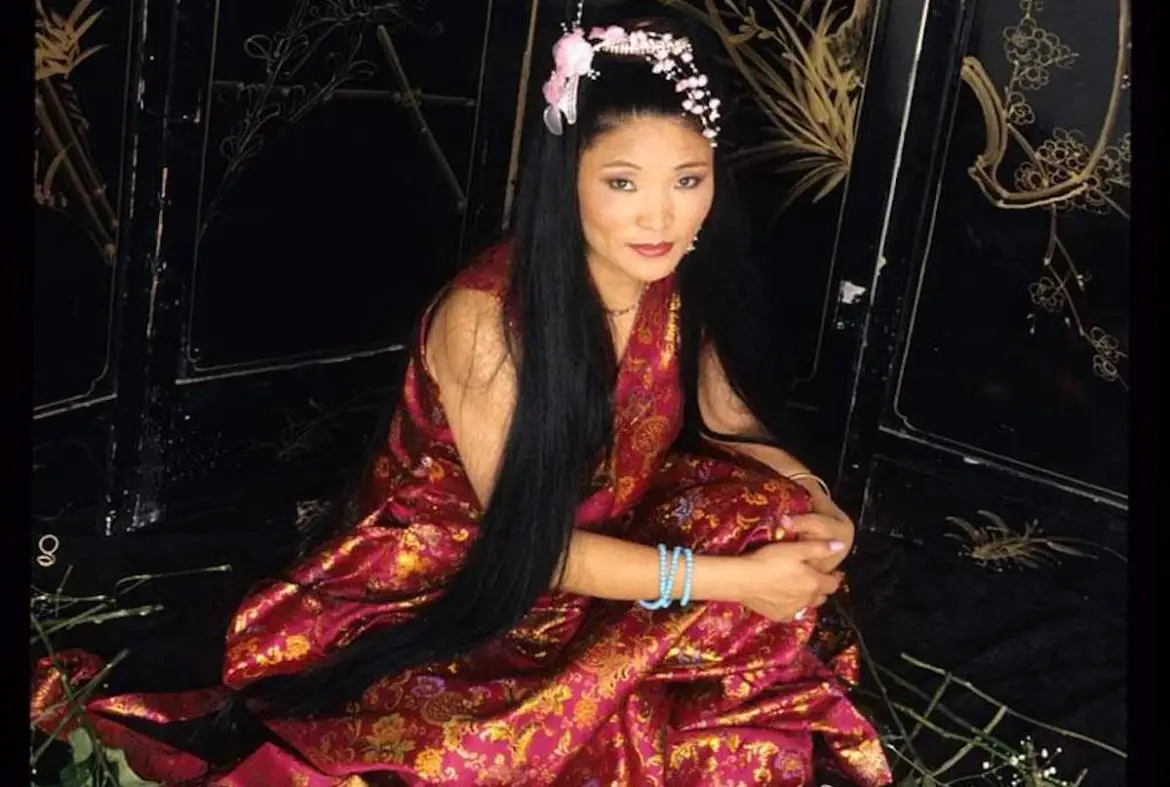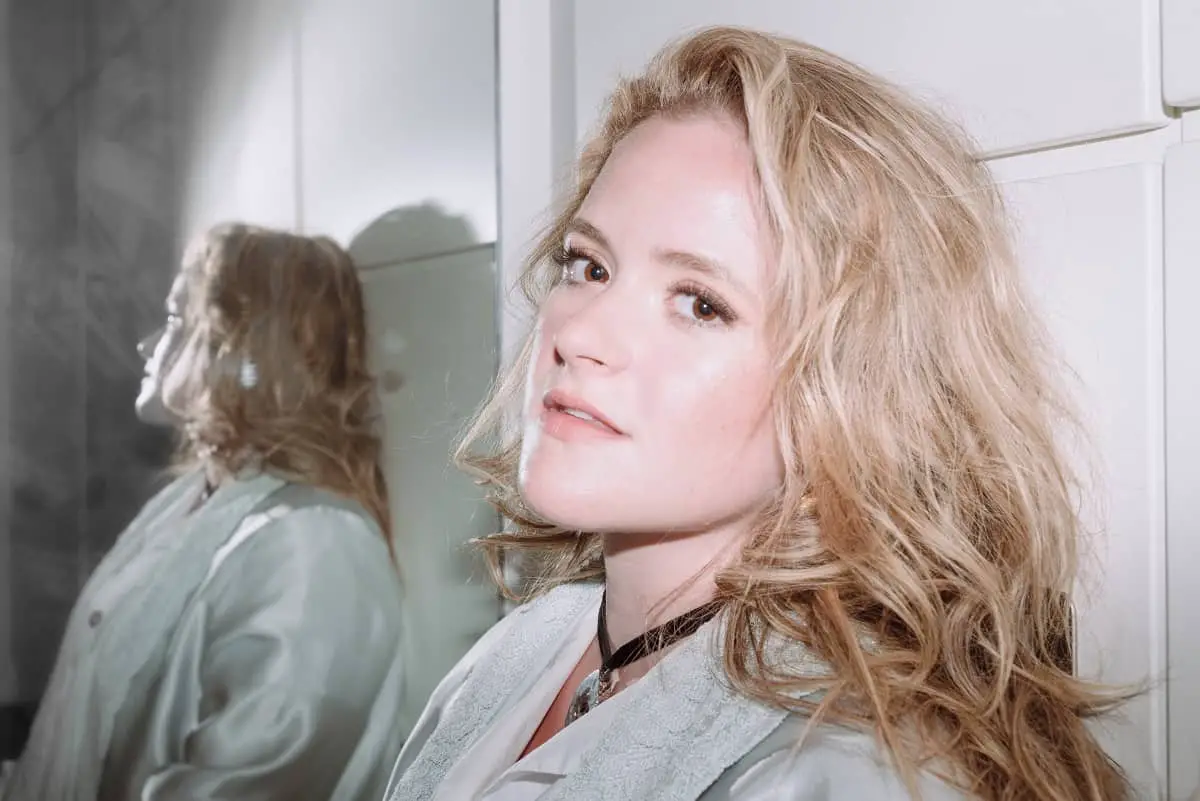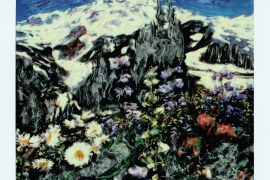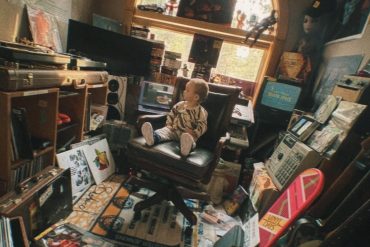Tibetan artist Yungchen Lhamo speaks to Atwood Magazine about how she discovered her singing talent as a child in Tibet, getting signed on Peter Gabriel’s Real World label, and singing with Bluegrass legend Peter Rowan.
by guest writer Mike Fiorito
Stream: “Happiness is…” – Yungchen Lhamo
There are some singers who invent a genre to suit their uniqueness. Yungchen Lhamo is one of those artists. Born in Lhasa, Tibet, Lhamo crossed the Himalayas to Dharamshala, India, with her son strapped to her back. She then moved to Australia, where she recorded prayers of meditation, which developed into her first CD, Tibetan Prayer, which won the Australian Recording Industry Award (ARIA) for best world album in 1995.
Performing throughout the world, Lhamo was then signed by Peter Gabriel to his recording company, Real World Records. She released her second album, Tibet, Tibet, on Real World Records in 1996.
Lhamo has since gone on to perform at Carnegie Hall with luminaries such as Philip Glass, Michael Stipe, Natalie Merchant, and others. Lhamo also performed at the 1997 Lilith Fair festival with Natalie Merchant, Sarah McLachlan, Sheryl Crow, and Jewel. Around this time, she was invited by Laurie Anderson to perform at the Royal Albert Hall in London, sharing the stage with Sir Paul McCartney, Annie Lennox, and Lou Reed.
I had the honor and privilege to talk via Facetime to Lhamo at the end of March 2021.
“How did you learn to sing?” I asked.
Dressed in a traditional yellow Tibetan robe, holding prayer beads, smiling as she spoke, Lhamo described her earliest recollections.
“Where I grew up, life was extremely hard for all of us, especially being raised by a single mother back then. We prayed all the time. One day, as I was singing a prayer, my grandmother asked me, ‘where did you learn that song?’ The conversation went something like this:
“What song, grandmother?”
“The song you’re singing,” my grandmother said.
“I just made that song up.”
“Do you want to be a singer?” she asked.
“No, I want to grow up quickly and become either a nun or a man,’ I said. My grandmother’s jaw dropped upon hearing this. “Why do you want to become a man?”
“I want to be able to carry firewood and water, and help the elderly,” I said.
“If you want to help people, you must sing. This is your gift,” my grandmother replied.
Then one day, I was singing ‘Ari-Lo,’ which would be a song on my second album Tibet, Tibet. “How do you know this song?” my grandmother asked.
“This is a song I made up,” I replied. My grandmother and mother were now both in tears. This was a very moving and magical moment for all of us.
“You need to sing to the world,” my grandmother said.”

And singing to the world is what Yungchen Lhamo has done.
“Where did you meet Peter Gabriel?” I asked.
“I met Peter in London after I toured Australia when I was performing for the Dalai Lama. I hadn’t yet made an album. But I was told that I needed to make a CD. I didn’t have the concept of singing something to then sell it. Even now, I don’t believe myself a singer. For me, singing is an offering. A prayer. However, listening to my manager, I quickly made the album Tibet Prayer, which, to my surprise, won the equivalent of the Grammy in Australia for Best World Music album. But this also meant that now I had to travel the world to perform. I would be representing Tibet and bringing our music around the world. And so, I went. And since then, it’s never ended.”
“Why did you decide to go with Peter Gabriel’s label?”
“I chose Real World because Peter insists on having music from around the world. Because of Peter, people know about other cultures. Peter looks beyond the music, to the culture, and the story behind the song. Peter cares deeply about the world. Not just about making hits. And he’s a good friend. He’s made the impossible possible. I had every obstacle in front of me. I am a woman, I don’t speak the language, I don’t have a big band, I perform spiritual songs and I don’t have a stage show. But Peter believed in the music and this has made all the difference.”
“Do you consider yourself a Tibetan artist?”
“There are two main types of Tibetan music. The first is the traditional Tibetan folk songs and operas, which I learned when young, but my own music is not Tibetan in that sense. The other type is the Tibetan Buddhist chanting of prayers and mantras and my songs tend to reflect something of that tradition.”
“The industry labeled you World Music?”
“You know, when I first heard this term World Music, I thought it sounded silly. Isn’t music something that’s meant for all of the world?”
“It’s a term that describes how narrow the music industry can sometimes be,” I said. “I hear everything in your music. That’s what makes it so special. I hear blues, jazz, classical and folk. Yes, I hear prayers too, but sung like I’ve never heard before. Besides, isn’t all singing a form of prayer?”
“I sing for the world – not just Tibet. I don’t look for the music – sometimes you make connections – you make creative contacts. I play with people, not just the instruments or styles from which they originate. I mostly sing acapella but since I’ve worked with musicians from other cultures, each of my albums after Tibet Prayer has a different feel. For instance, on Coming Home, I worked with French producer Hector Zazou. My second album, Ama, was produced by Jamshied Sharifi, an Iranian American. My third album, Tayatha, was produced by Anton Batagov, a Russian pianist and post-minimalist composer. And finally, on my current album Awakening I worked with Spanish producers Julio Garcia and Carmen Ros. No doubt each album reflects the culture and musical traditions of the different producers and musicians that have worked on them.”
“How did you meet Peter Rowan?”
“I met Peter Rowan in 2015; we were playing on the same bill at the Leaf Festival in North Carolina. Peter then asked me if I wanted to play with his Bluegrass group at the Lake Eden Arts Festival, also in North Carolina. The Lake Eden Arts Festival is traditionally a Bluegrass only festival, I was told. ‘They might resist something new,’ Peter said. I must tell you; we were a hit. People gave us a standing ovation. Then that autumn I toured with Peter for his new album, The Old School, and we have collaborated on and off since then. I am working with him again right now on a new song and plan to meet up with him in California in April. One can say that Peter sings Bluegrass, but his music transcends that category.”
“You’re a true World Music composer,” I said.
We both laughed a little.
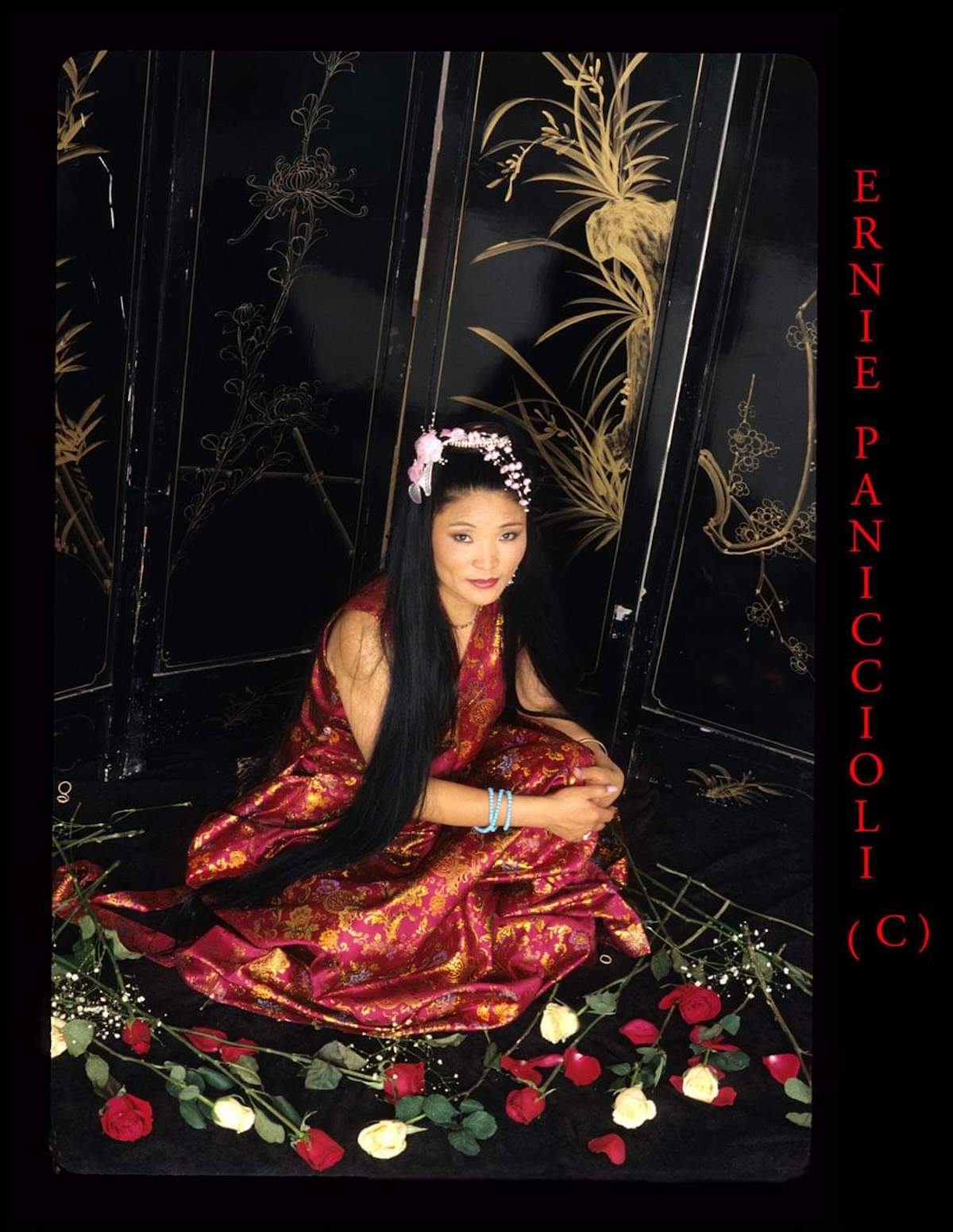
I told Lhamo that I’ve been a huge fan of Peter Rowan since his collaboration with Jerry Garcia, David Grisman, and Vassar Clements on Old & In the Way and have continued to be a fan.
“Your new LP, Awakening, is spectacular. I love all the spiritual aspects of the songs, but I hear so many emotions and influences. “Home is Wherever You Are” for instance, reminds me of an Appalachian song. I hear that high, lonesome sound in your voice. It’s layered with longing and sadness. What inspired this song?”
“I hear music and it finds its way into my music. I don’t try to copy. It just happens.”
Perhaps Peter Rowan’s influence found its way into the feel of “Home Is Wherever You Are.”
Like all Yungchen Lhamo’s albums, the songs on Awakening are incredibly varied. And while the title song “Awakening” is a prayerful invocation, Lhamo’s ribboned voice winding around a violin, the song “Monkey Mind” comes more from the blues tradition.
“Loving Kindness” has a Flamenco influence and features singer Carmen Linares. The song “Sun and Moon” is sensuous romance. Lhamo’s voice whispers through mysterious landscapes, taking you on a visionary journey. Flung far across the globe, closer to Lhamo’s roots, the song “Four Wishes” is reminiscent of Chinese music.
Lhamo is like a sponge who takes everything she hears and incorporates it into her music. You will hear her voice sound as delicate as the wind; but you’ll also hear her voice boom like it can carry across mountains. At the heart of all her music is prayer, but tuneful prayer.
I then asked Lhamo about her One Drop of Kindness Foundation.
“At One Drop of Kindness Foundation, people can volunteer, bringing their specific talents. Whether they’re writers, designers, or teachers. We’re just asking for people to give their time. Elderly people willing to teach Tibetan children. One week, thirty minutes. In the future we will have a place so that children can go to learn dancing, singing and prayer. This is open to everyone. Like the One Drop of Kindness water signature logo suggests, all it takes is one drop of yourself. My wish is that if we human beings appreciate the world around us, this makes us healthy and makes the world a better place. One drop of water accumulates. Many drops of water make an ocean.”
Since it was established in 2004, the One Drop of Kindness Foundation’s projects have brought music, hope, health, and happiness to many people in Tibet, Nepal and India, in the USA, and in Ireland. Initial projects included providing single mothers, children, and the elderly in Tibet with clothing, shoes, prosthetic limbs, and educational supplies.
In addition, Lhamo has brought her music to countless homeless shelters, classrooms, retirement homes, and community spaces throughout the USA, Asia, and Europe. For example, her 2015 show in Kingston, NY, “You Are Beautiful, I Am Beautiful,” was reviewed in Newsweek Magazine.
Lhamo also makes jewelry, which she started doing during the pandemic. “If you purchase my jewelry, it goes towards the foundation.”
“What’s next for you?”
“While I’m trying to find a label for Awakening, I’m working on another album now called In Grass Valley.”
We talked for a while longer, discussing the importance of trying to do the right thing in life, to be a good person. I really didn’t want to hang up. I showed Yungchen my guitar and we even played a song together. It was delightful. I told Yungchen that she’s like water, and can fit into any shape.
If Yungchen Lhamo is considered World Music, it’s because her music contains the entire world.
— —
Mike Fiorito’s fourth book Falling from Trees published in early February 2021; his other books are Call Me Guido, Freud’s Haberdashery Habits and Hallucinating Huxley. For more info, visit: fallingfromtrees.info
— —
— — — —

Connect to Yungchen Lhamo on
Facebook, Twitter, Instagram
Discover new music on Atwood Magazine
? © Ernie Paniccioli
:: Stream Yungchen Lhamo ::

